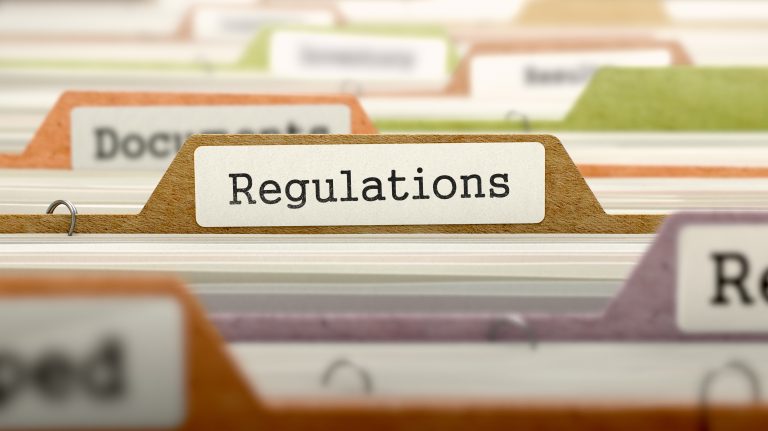If you are working within the Medical Devices industry you will understand it is going through a period of tremendous transformation; over the next six years we are facing several changes in legislation around the regulation of devices and the numerous deadlines to meet to ensure the products remain safe and compliant.
Firstly, it is important to understand the legislation which is affecting the Medical Devices industry:
- Almost every organization with a device on the market are now seeing the effects of the updates to the MedDev 2.7/1 Revision 4
- In January 2019 a company wanting to sell their products in Canada will need a verified MDSAP certificate
- By February 2019 manufacturers must meet the requirements of ISO 13485:2016 to maintain their Quality Management System certification
- By May 2020 new EU MDRs will be in effect
This has created a lot of thinking in the form of company strategy, which in some cases require new members of staff across all levels. As the deadlines loom closer, companies that have not put MDR implementation at the top of their priority list could find themselves requiring much assistance.
The acronym MDR refers to the European Union’s implementation of the new Medical Device Regulations (MDR’s) - a heavily documented and burdensome piece of legislation created to restore and extend trust and safety within the industry.
The aim of this article is not to explain the MDR’s step by step, this has already been highly documented, but the aim is to give you an insight into the needs of our clients and the Medical Device market to prepare for these deadlines.
Although the deadline for MDR is two years away, products that are certified to MDD standards before the deadline will be considered compliant for up to 3 years afterwards. However, with CER updates, MDSAP certificates and ISO 13458:2016 deadlines to also consider, two years will fly by.
Under the MDR’s, every product within a portfolio, no matter which class device, must be examined and meet the expectations set by the European Union - the higher risk or class of device, the more stringent measures are required to sell the products in the future.
Whether a medical device company is a start-up awaiting CE mark to put their product on the market, or a multinational company with hundreds of devices on their portfolio, these regulations will make a distinct and instant impact.
Regular discussions with hiring managers and Executive Management across the industry have told us that there is concern around how organizations can meet the deadlines set and how they can keep their devices on the market and compliant. It has become apparent from these conversations that one of the key solutions to tackling these concerns and reaching these targets is by adding to the workforce.
Due to the short term needs and the time constraints of the deadlines, the majority of employers will be looking to add contract or contingent employees to their projects, rather than permanent members of staff. Different organisations will demand different levels of experience - some require very experienced contractors, who can advise and lead teams on a more strategic level, whilst others will need a junior, to be more ‘hands-on’ in their approach.
The demand for contractors over the next six years in preparation for the MDR’s are only going to increase. It is important to think of the impact of these changes as lasting beyond the quality system changes in over the next two years; the real hard work for remediating tech files and updating the clinical documents could take up five or six years (depending on the company’s CE strategy).
As we get closer to deadline for MDR, the recruitment market for contractors will become increasingly competitive. The contractors with expert knowledge on the topics with deadlines approaching are in high demand, they will be able to add more value to companies. Therefore, the higher the level of demand for their skills increases probability that they will complete their projects on time.
At Concilium we are regularly placing people on twelve-month contracts, or longer, for the duration of MDR implementation projects. Companies not forecasting the amount of work required risk not finding qualified candidates for the projects and could end up paying higher rates for contractors, who will naturally be in short supply.
Here at Concilium, we have taken pride in guiding and helping candidates to transition from permanent employment into the world of consulting, alongside working with our extensive network of experienced consultants that we have on assignments across the globe. With the market in the position it is, and the increase in demand for experienced consultants to come onto site and deliver value, there has never been a better time to seek guidance on the best way to make the move into consulting.
As a contractor International travel, flexible working hours, the chance to work in multiple teams and the ability to be a part of a project team that delivers success and reward to the client; are just a few reasons why my network of contractors have moved from permanent to contracting.
We have also had great success placing both individuals and teams within Regulatory & Clinical Divisions to meet the strict deadlines that are in place. Within the industry our contractors span from our HQ here in the EMEA region, our US office in New York working organizations both on the East Coast & mid-West as well as numerous projects in the Far East. Our team are frequently recommended for repeat business with existing clients through different sites, as much as new clients that are looking for a single and full-solution support we can offer.
Our Healthcare Contracts team has grown exponentially over the last 12 months. With the number of contractors we are placing internationally and clients we are supporting, for some, during a very stressful time period, it is a very exciting time for not only us but the Medical Device industry on the whole.


Post a Comment